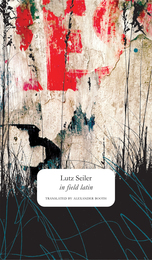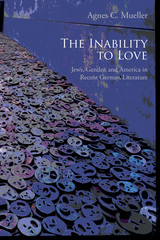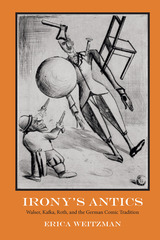6 start with I start with I


When the COVID-19 pandemic hit, Michael Krüger was suffering from severe shingles and just beginning treatment for leukemia. Because his immune system was so compromised that even a cough would have knocked him flat, he had to stay away from people. He retired to a wooden house near Lake Starnberg in Germany, and from there he dispatched his poetic messages. Krüger’s meditations from quarantine were printed for many months in the magazine of the Süddeutsche Zeitung and met with an enthusiastic response. In a Cabin, in the Woods collects fifty tableaux of nature, images of the immediate surroundings of a restricted life that also look beyond the horizon. At the same time, these poems look inward to explore transience, illness, and death. Humorous and melancholy, these are studies of the world made with the tiniest compass—meditations on nature and the nature of self that touch us all.


The Inability to Love borrows its title from Alexander and Margarete Mitscherlich’s 1967 landmark book The Inability to Mourn, which discussed German society’s lack of psychological reckoning with the Holocaust. Challenging that notion, Agnes Mueller turns to recently published works by prominent contemporary German, non-Jewish writers to examine whether there has been a thorough engagement with German history and memory. She focuses on literature that invokes Jews, Israel, and the Holocaust. Mueller’s aim is to shed light on pressing questions concerning German memories of the past, and on German images of Jews in Germany at a moment that s ideologically and historically fraught.


Combining theoretical breadth with close textual analysis, Erica Weitzman shows how irony, a key term for the German romantics, reemerged in the early twentieth century from a postromantic relegation to the nonsensical and the nihilistic in a way that both rethought romantic irony and dramatically extended its reach.
Through readings of works by Robert Walser, Franz Kafka, and Joseph Roth against the rich history of comic theory (particularly Hegel and Freud), Weitzman traces the development of a specifically comic irony in modern German-language literature and philosophy, a play with the irony that is itself the condition for all play. She thus provides a crucial reevaluation of German literary history and offers new insights into the significance of irony and the comic from the Enlightenment to the present day.
READERS
Browse our collection.
PUBLISHERS
See BiblioVault's publisher services.
STUDENT SERVICES
Files for college accessibility offices.
UChicago Accessibility Resources
home | accessibility | search | about | contact us
BiblioVault ® 2001 - 2024
The University of Chicago Press









